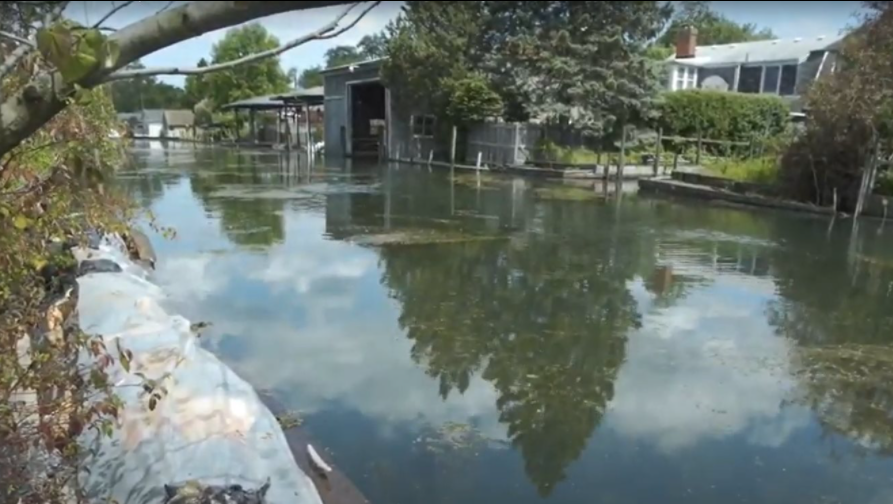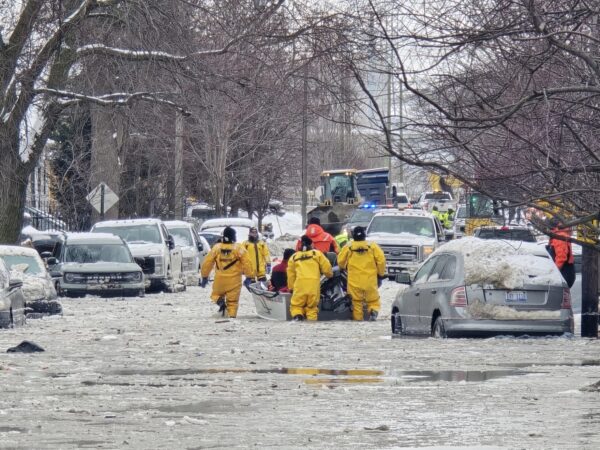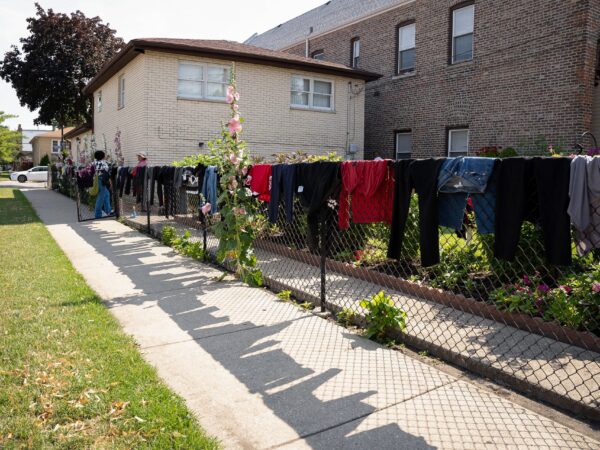
DETROIT (AP) — Two water pumping stations in Detroit experienced power-related problems but did not fail during a heavy rainstorm last week that left basements, streets and even freeways flooded, the head of a regional water and wastewater agency said Friday.
Great Lakes Water Authority Chief Executive Sue McCormick told reporters that due to an electrical service issue only three of six pumps at one station were able to be brought online, while a power outage at a second station slowed efforts to turn three of its pumps on as the rain poured.
Eventually, five of the six pumps at the Connor Creek station were able to operate. Both Connor Creek and the nearby Freud stations serve Detroit’s east side and several suburban communities. Designed to carry wastewater and excess storm water to treatment facilities, they were overwhelmed by the 7-8 inches of rain that fell in less than 19 hours between June 25-26, McCormick said.
“Not only did we receive a large volume of precipitation, but it also fell in very intense bursts,” she said. “A review of the gauge data indicated the rain event was far beyond our designed standard.”
“We weren’t able to run everything that, in a perfect world, we would have been able to run,” McCormick added.
The storm left thousands of basements flooded in the Detroit area and across parts of southeastern Michigan. Cars and SUVs stuck in high water were abandoned on flooded freeways and many streets were impassable.
McCormick said an after-event analysis will be performed and an internal investigation conducted of the water system’s operations. The authority’s board has been asked to consider hiring an independent engineering expert to examine the water system’s performance and the response to the problems, she said.
Candice Miller, public works commissioner in neighboring Macomb County, on Thursday called for an independent investigation. “It appears there was a management failure at the Conner Creek pump station,” she added.
Miller’s staff decided to release millions of gallons of treated water and waste to Lake St. Clair rather than risk sewage backups in Eastpointe and St. Clair Shores that hit basements in the Grosse Pointe communities, Detroit, Dearborn and Dearborn Heights in Wayne County.
Both Wayne and Macomb counties have representatives on the authority’s six-member board.
Catch more news on Great Lakes Now:
Detroit Flooding Previews Risks from a Warming Climate
Green Infrastructure: Cities around the Great Lakes plan for a changing future
Great Lakes Moment: Ecosystem restoration needs more environmental justice
Featured image: The high water in canals on Detroit’s east side neighborhoods are threatening homes. (Detroit Public Television photo)




